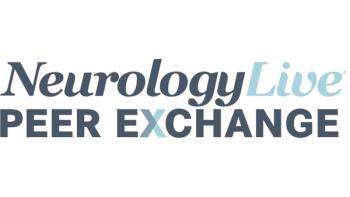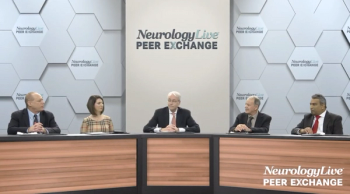
Movement Disorders
Latest News
CME Content






The Infinity DBS system is the only directional DBS system approved to target all major areas associated with movement disorders, including Parkinson disease and essential tremor.

The phase 2 clinical trial of CAD-1883 will assess the efficacy and safety of the drug compared to placebo.

Neurology News Network for the week ending January 27, 2020.

Findings from the small-scale study showed that the drug had target engagement with β-glucocerebrosidase as well as cerebrospinal fluid penetration.

Findings from a large scale analysis show higher rates of cognitive impairment and neuropsychiatric disturbances in patients with parkinsonism-dominant motor-manifest individuals.

Use of rimabotulinumtoxinB (Myobloc; US WorldMeds) result in statistically significant reductions in sialorrhea compared to placebo with both 2500 U and 3500 U doses.

Take 5 minutes to catch up on NeurologyLive's highlights from the week ending January 17, 2020.

The neurostimulation device may help to accelerate the removal of a patient’s breathing tube by restoring neurological swallowing control.

Neurology News Network for the week ending January 11, 2020.

Neurology News Network for the week ending January 4, 2020.

Recent findings suggest that patients with Parkinson disease may have impaired swimming ability, even in light of motor improvements with treatment.

The approvals introduced several new classes of drugs, including the ditans and gepants in migraine, as well as novel formulations that can ease the administration of treatments for Parkinson disease and epilepsy.

Catch up on some of our most popular Peer Exchange panels with experts in the field, including discussions on epilepsy, migraine, multiple sclerosis, and more.

WVE-120102 is the first allele-selective molecule that preferentially lowers mHTT protein by targeting SNP2 in order to maintain levels of healthy or wild-type HTT protein.

Catch up on some of our most popular video interviews with leaders in the field, including discussions with Imad Najm, MD, James Leverenz, MD, Richard Isaacson, MD, and more.

A greater understanding of the role of the immune system in movement disorders may illuminate a path to treatments that target the central causes of disease.

After resubmitting the NDA for apomorphine sublingual film (APL-130277), the FDA has set the new PDUFA action date of May 21, 2020.














